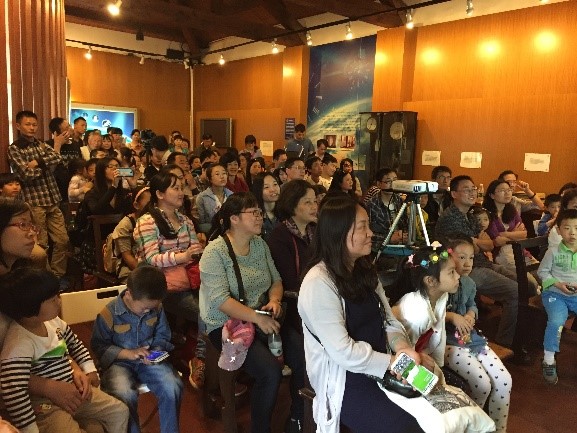Shanghai Astronomical Observatory (SHAO) celebrates the 11th annual Public Open Day of the China Academy of Science (CAS) on May 16-17, also the National Science and Technology Week, as well as the International Day of Museum on May 18, with a variety of activities. It includes the opening of Shanghai Key Laboratory of Space Navigation and Positioning Technology to the public, the opening of Shanghai Astronomical Museum (Sheshan Science Education Base of Shanghai Astronomical Observatory) for free, setting up telescopes for solar observation and holding astronomy salons. According to the in-site data, more than 300 citizens visited the key laboratory, approximately ten thousand people visited the Shanghai Astronomical Museum and more than 200 attended the astronomy salons.
Shanghai Key Laboratory of Space Navigation and Positioning Technology being open to the public on May 16 - 17
The Key Laboratory was opened to the public on May 16 – 17. Each day, the visitors were divided into four groups. Group was guided by scientists from SHAO. Through a series of ways, including visiting the key laboratory, listening to talks given by the scientists, watching educational movies and communicating with the staffs directly, audiences began to know more about the “VLBI control center” and “Tianma radio Telescope”.
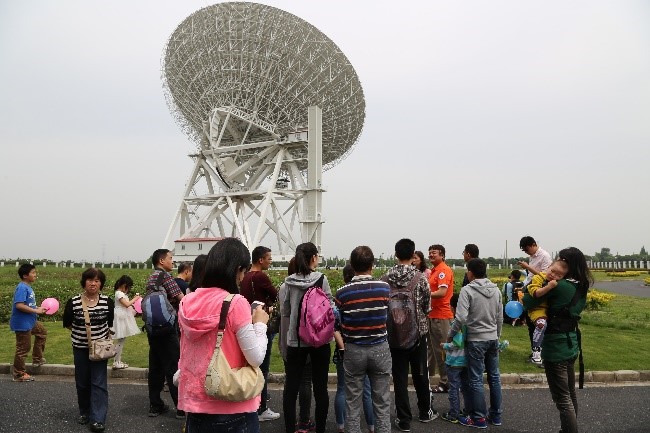
Shanghai Astronomical Museum being open to the public for free on May 16 – 18

As part of the SHAO of the CAS, during the annual public open day and the following International Day of Museum, Shanghai Astronomical Museum was opened to the public for free. In this museum, there are several exhibitions showing the development history of SHAO, the history of telescopes and the beautiful starry sky. Furthermore, there are also some astronomical historic relics, i.e., telescopes and instruments used for time measurement.
“Approximately 10,000 people visited our museum.” The ticket staff said.
“People were interested in one of the most treasures in this museum --- a 40cm double refractory telescope built 115 years ago. In order to have a good environment for audiences, we need to control the stream of people who enters the dome. For the people standing in waiting queue, we show them the surrounding exhibition.” One of the volunteers said.
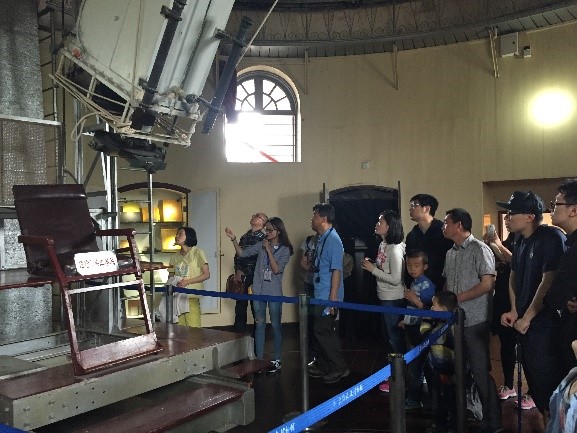
12 cm telescope being set up to observe the sunspots
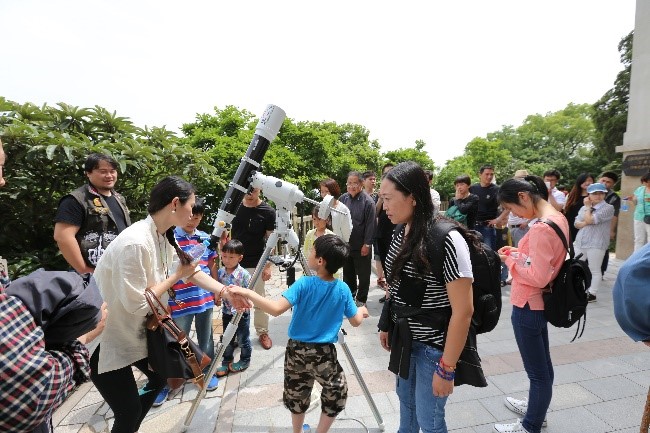
“To let people who enters our museum have an experience of watching the sun with a telescope, we set up a 12 cm telescope on the sundial square and invite people to watch the sunspots through this telescope.” One staff in the museum showed us this facility. One old lady said, “this is my first time to see the sunspot. It’s amazing.”
Two astronomy salons being hold each day on May 16 – 17
On each day in May 16 – 17, there is one salon held in the astronomy classroom of the museum. It provided the citizens who were visiting the museum an opportunity to know more about astronomy, the universe as well as the relation between us and the universe.
On May 16, Guo Gang, a well-know Chinese amateur, vice-secretary of Shanghai Astronomical Society, the president of the Shanghai “Qi-Ming-Xing” Astronomy Amateur Union, gave a talk about his story of chasing the sun --- “where is Kua Fu? Dad’s notes on chasing the sun”. He shared with us on how he organized events to go wherever the total solar eclipse happened in the last 8 years. He has been to Xinjiang and Shanghai of China, Australia, Kenya and Norway, respectively, in these five events. In the last two tours, he took his little daughter. “One day, I will be an old guy. At that time, I hope I can still chase the sun with my daughter. It will be her who take me there.” Guo Gang said.
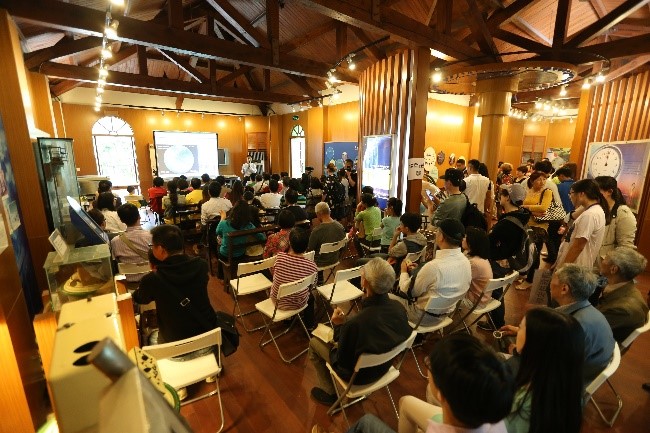

Audiences enjoyed this talk and asked Guo Gang a lot of questions about the solar eclipse as well as the astronomical tours.
On May 17, Dr. Zuo Wenwen from SHAO gave a talk about “the astronomy of the ‘Interstellar’”. “Even though the movie ‘Interstellar’ was a movie shown last year, it is still very popular among the public. People would like to know more about astronomy in this movie.” Wenwen said, “As I know there are many kids in the audience, I would just mention a bit about black hole and wormhole. More attention will be paid to clarifying our position in the universe to citizens, in coordinates of both space and time.”
More than 100 people enjoyed this talk. One young women told Wenwen after the talk, “Now I really think we are so tiny in this world, but it also means we are special. I was a little down before I entered this room, but now I am touched by my own existence.” In Wenwen’s opinion, this is the ever best comment she heard about her talk.
